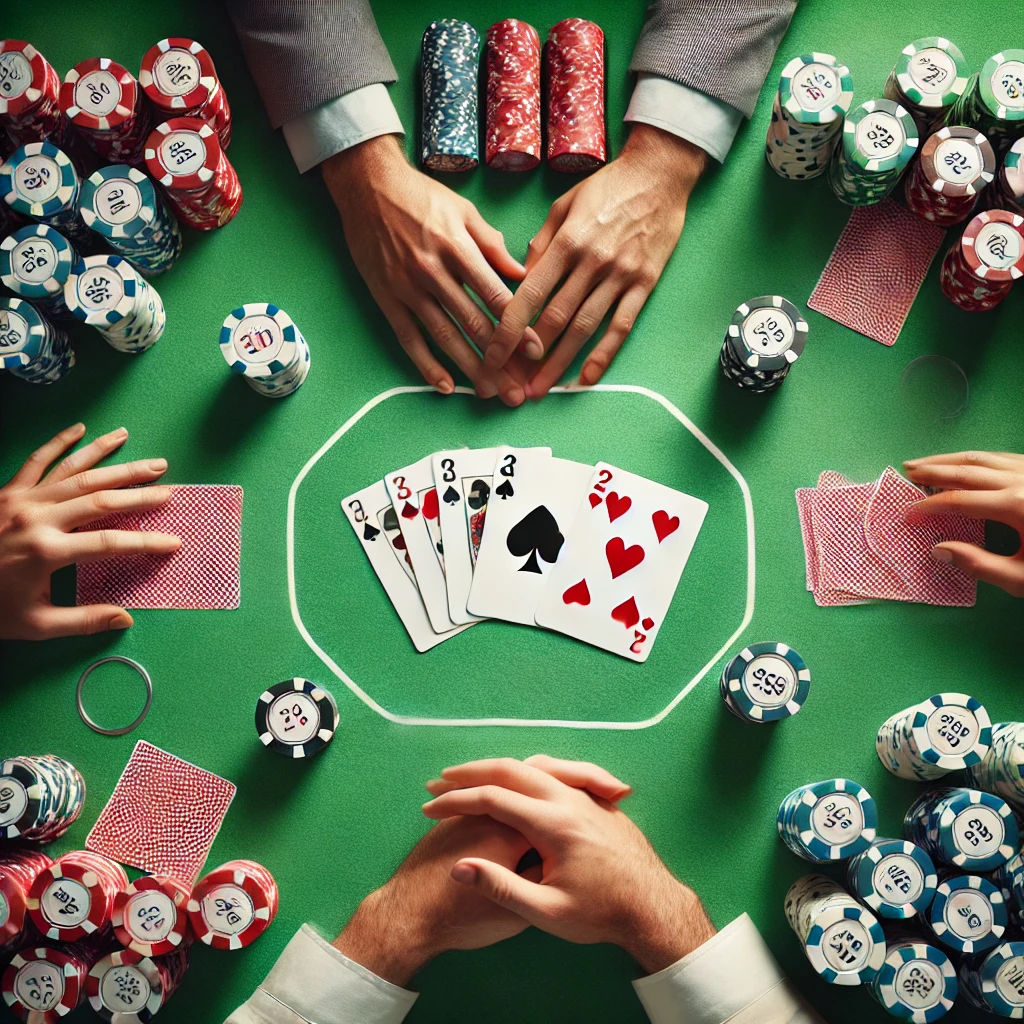Introduction
Slot tournaments vs poker tournaments are two popular forms of competitive gambling that attract many players with their promise of excitement and big wins. However, these tournaments also come with significant risks that can impact your financial stability and overall gaming experience. By examining the financial pitfalls, psychological pressures, and other issues associated with each, this blog aims to help you understand which type of tournament might be riskier for you. Let’s dive in and compare the risks involved in slot tournaments and poker tournaments.
Are Slot Tournaments Financially Risky?

Slot tournaments can pose substantial financial risks due to high entry fees and the fast pace of play. Participants often feel pressured to buy multiple re-entries to increase their chances of winning, leading to significant financial expenditures. The nature of slot machines means that the house always has an edge, making consistent winnings unlikely. Moreover, the competitive atmosphere can encourage reckless spending, with players chasing top leaderboard positions without considering the overall cost.
How Do Entry Fees Impact Finances in Slot Tournaments?
The cost of entry fees in slot tournaments can quickly add up, especially in high-stakes events. High entry fees can drain a player’s bankroll, particularly if they do not win or place in the tournament. The allure of potentially large payouts can tempt players to spend more than they initially planned, resulting in financial strain. For casual players, these entry fees may not be worth the risk given the slim odds of substantial returns.
Are Poker Tournaments Financially Risky?
Poker tournaments also carry significant financial risks due to high buy-ins and the possibility of needing to re-buy or add-on chips. The extended duration of play and the competitive nature of poker mean that even skilled players can incur substantial losses. The prize distribution in poker tournaments is typically top-heavy, so many participants walk away with little to no return on their investment, while only a few secure large payouts.
How Does Prize Distribution Affect Finances in Poker Tournaments?
In poker tournaments, the prize pool is often distributed among the top finishers, with the majority of the money going to the highest-ranking players. This top-heavy distribution means that many participants do not see any return on their buy-in. For those who do not place in the top ranks, the cost of buy-ins, re-buys, and add-ons can lead to significant financial losses. The long hours required to progress in the tournament can also result in additional expenses, such as food and lodging, further impacting finances.

Why Are Slot Tournaments Psychologically Stressful?
Slot tournaments can be mentally taxing due to their fast-paced nature and the pressure to achieve high scores within a limited time. The bright lights, loud sounds, and competitive environment can cause anxiety and stress. Players may experience frustration and disappointment if their performance does not meet expectations, leading to impulsive decisions and increased betting. The reliance on luck rather than skill can also contribute to a sense of helplessness and frustration.
Understanding the psychological impact of slot tournaments is crucial to grasping why they can be so alluring and, at the same time, so detrimental. The combination of sensory overload and the thrill of competition creates a potent mix that can lead to addictive behaviors. To delve deeper into the reasons behind slot machine addiction and how these games are designed to keep players hooked, check out the following video: “Why do people get addicted to slot machines?”.
What Psychological Challenges Do Poker Tournaments Present?
Poker tournaments present significant psychological challenges due to the strategic depth and social dynamics of the game. Players must constantly read their opponents, manage their emotions, and make calculated decisions under pressure. The extended duration of tournaments can lead to mental fatigue, affecting decision-making and increasing the likelihood of mistakes. The pressure to perform well can result in stress, anxiety, and even tilt – a state of emotional agitation that can lead to reckless play and significant losses.
Are Payment Delays Common in Slot Tournaments?
Payment delays can be an issue in slot tournaments, particularly in online settings where verification processes and technical issues might slow down payouts. For players expecting immediate access to their winnings, these delays can cause frustration and financial inconvenience. The lack of transparency in some online casinos regarding payout processes can also erode trust and deter players from participating in future tournaments.
Do Poker Tournaments Also Experience Payment Delays?
Payment delays are also common in poker tournaments, especially in large-scale events where prize distribution needs to be meticulously verified. Online poker platforms may face technical issues, verification processes, or disputes over winnings that can delay payments. For high-stakes players, these delays can be particularly problematic as they often deal with larger sums of money and have financial plans dependent on timely payouts.
Why Are Slot Tournaments Addictive?
Slot tournaments can be highly addictive due to their fast-paced nature and the constant reinforcement of near-wins and small payouts. The engaging graphics, sounds, and the thrill of competition can lead to compulsive play. The structure of tournaments, with timed rounds and leaderboards, can encourage players to continue playing in hopes of improving their ranking, leading to extended play sessions and potential addiction.
Is Addiction a Concern in Poker Tournaments?
Addiction is also a concern in poker tournaments, driven by the strategic challenge and the social aspects of the game. The desire to outplay opponents and achieve high rankings can lead to obsessive behavior and prolonged play. The emotional highs and lows associated with winning and losing can create a cycle of compulsive gambling. The potential for significant financial gains can also entice players to invest more time and money than they can afford, leading to gambling addiction.
For players who enjoy the thrill of poker tournaments, it’s crucial to find a balance between passion and responsibility. If you’re interested in exploring the competitive world of poker without falling into addictive patterns, our Major European Poker Tournaments Guide offers a comprehensive overview of the best events. This guide provides detailed information on tournament structures, entry fees, and strategies to help you participate in these prestigious competitions while maintaining control over your gambling habits.
How Does the House Edge in Slot Tournaments Affect Risk?
The house edge in slot tournaments remains a significant risk factor, even in a competitive setting. The inherent house advantage means that the odds are always tilted in favor of the casino, making consistent winnings difficult. This edge, combined with the high entry fees and the pressure to perform, can quickly deplete a player’s bankroll. The house edge, along with the randomness of slot outcomes, can make it challenging to recover losses and achieve financial stability.
To improve your chances and better manage your bankroll in slot tournaments, it’s essential to adopt effective strategies and understand the game mechanics. Our guide on winning at slot machines offers valuable tips and techniques to enhance your gameplay. By familiarizing yourself with these strategies, you can increase your odds of success and make more informed decisions, helping to mitigate the risks associated with the house edge and entry fees.
Does the House Edge in Poker Tournaments Differ?
The house edge in poker tournaments is generally lower than in slot tournaments, but it still presents risks. The edge comes from the rake – a small percentage of each pot that the casino takes as a fee. While skilled players can mitigate some of this risk through strategic play, the need for consistent high-level performance and the competitive nature of poker tournaments mean that financial losses are still a significant possibility.
Conclusion
In conclusion, both slot tournaments and poker tournaments come with their own set of risks that can impact your financial and psychological well-being. Slot tournaments pose risks due to high entry fees, rapid gameplay, and the potential for addiction. Poker tournaments, while skill-based, also present significant financial risks, psychological pressures, and potential for addiction. Understanding these risks can help you make informed decisions and manage your gaming activities more responsibly. Always approach gambling with caution, set strict limits, and prioritize responsible gaming practices to ensure a safer and more enjoyable experience. You can always visit our website to get more information about gambler’s activities.
External Links

OnlineGameReview.ca, your premier destination for honest and comprehensive game reviews in Canada. Our mission is to provide unbiased and thorough evaluations of all types of games, including casino, slot, PS5, and PC games. We pride ourselves on highlighting both the positive and negative aspects of each game, ensuring our readers make informed decisions. At OnlineGameReview.ca, we do not accept payments for reviews, maintaining our commitment to transparency and trustworthiness. Join us as we explore the gaming world and keep you updated on the latest trends and game quality.


